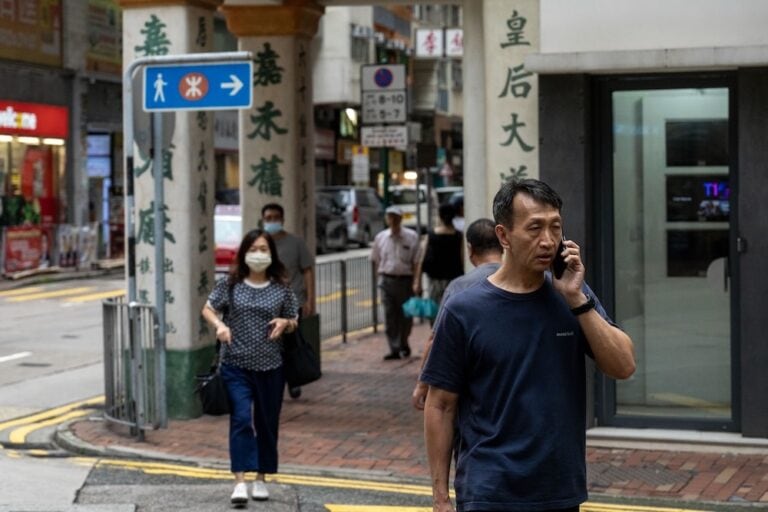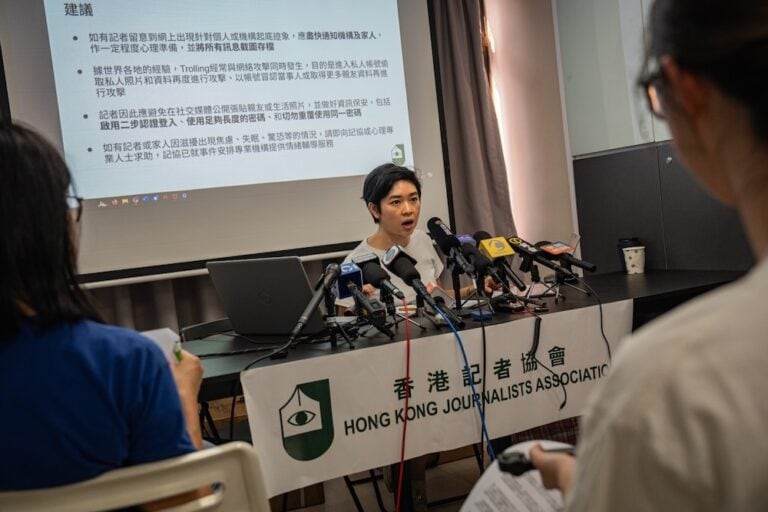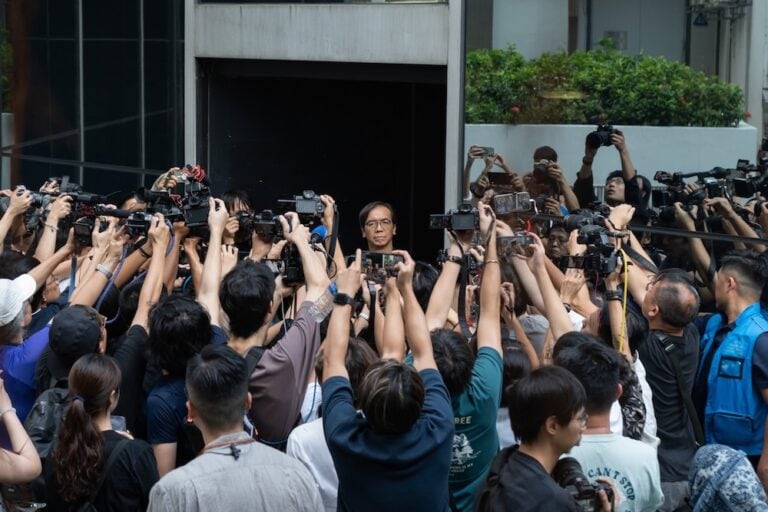(IFJ/IFEX) – The following is an IFJ media release: Editorial independence under assault in Hong Kong The International Federation of Journalists (IFJ) is concerned over the latest attacks on freedom of expression and editorial independence in Hong Kong, namely the decision by the Hong Kong Government to interfere in programming decisions of Hong Kong’s public […]
(IFJ/IFEX) – The following is an IFJ media release:
Editorial independence under assault in Hong Kong
The International Federation of Journalists (IFJ) is concerned over the latest attacks on freedom of expression and editorial independence in Hong Kong, namely the decision by the Hong Kong Government to interfere in programming decisions of Hong Kong’s public service broadcaster, Radio Television Hong Kong (RTHK).
“As a public broadcaster, it is RTHK’s responsibility to answer to the public and not the Hong Kong Government,” said IFJ President Christopher Warren.
“RTHK is paid for by the public and should broadcast what its editors determine is in the public’s interest – not be the government’s manipulated mouthpiece,” said Warren.
On Monday July 11, 2005, the Government Minister responsible for the RTHK, John Tsang, announced the station would drop its live horse racing programming from the 2005-2006 racing season.
While non-controversial on the surface, the decision reflects comments made by Hong Kong’s Chief Executive Donald Tsang Yam-kuen in June 2005.
“We need the assistance of RTHK in explaining our policies effectively to the public,” said Donald Tsang.
The RTHK has come under pressure from pro-Beijing politicians since the 1997 handover to better reflect the views of the government and to become a government mouthpiece.
This follows the firing of talk show host Wong Yuk-man on July 2 by Commercial Radio, the third outspoken talk show host to depart from Hong Kong airwaves since May 2004 over their criticism of the Hong Kong and Chinese Governments.
“These latest developments suggest that the Hong Kong Government is more focused on silencing opposing voices than upholding the democratic principles of freedom of expression and the right to editorial independence,” said Warren.
These events and others were covered comprehensively in the IFJ-affiliated Hong Kong Journalists Association’s (HKJA) annual report, New Challenges to Freedom of Expression, released on Sunday, July 17 during an IFJ workshop in Hong Kong.
Journalists representing more than a dozen journalists’ organisations across the Asia-Pacific region expressed solidarity for Hong Kong journalists and their fight for freedom of expression at IFJ Asia’s regional meeting in Taipei, Taiwan from July 7-10. In particular, they called for the release of Hong Kong journalist Ching Cheong, who has been held in custody by mainland Chinese authorities since April 2005.
The IFJ represents over 500,000 journalists in more than 110 countries.


